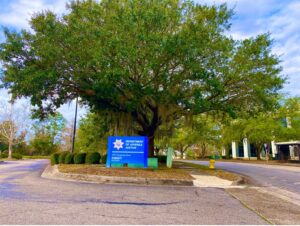
Local youth who have run afoul of the law have been granted an opportunity to become eligible for several alternative programs to restart and reset their lives.
The Tallahassee Police Department has established five different programs designed to prevent teens from becoming at-risk juveniles and grant alternative arrest options. These programs are part of many efforts to prevent a cycle of criminal activity and shape teens and pre-teens into the people they have the potential to be.
Florida is home to much progress in youth services. Of the 31,612 youth arrested in 2021, only 19,068 served time. The remaining 12,544 youth were successfully issued alternatives to jail, according to the 2021 Delinquency Intake, Comprehensive Accountability report data. This means those children were able to benefit from the programs without being arrested for their mistakes.
The programs offer home visits for check-ins to ensure supervision and intervention success. The team will also assign probation, curfews, and complete community service hours.
“The primary goals are to provide intensive supervision and intervention for juvenile offenders under community control or aftercare to prevent recidivism,” the Leon County Responding Against Delinquency and Recidivism Program says on its website.
The programs are designed to serve as opportunities for reconstruction, mentorship, and alternatives to arrest for non-serious misdemeanor cases. The offenses may range from retail theft to battery mischief, but all efforts are to save the youth from a one-time mistake that could predict their futures. It is an effort to rectify situations early by allowing young people to see a better future with the correct help.
In Leon County, it is very important for programs like this to help juveniles not become truants. Truancy is known to be the first step to multiple problems. When students become truant, they fall behind in classwork, which eventually creates a crossroads that could make dropping out easier than catching up to graduate.
The U.S. Department of Justice says, “For a growing number of youth, truancy may be a first step to a lifetime of unemployment, crime and incarceration.”
Jimmy Williams, Leon County Schools’ coordinator of the safety and security center, says the district will always look for ways to steer a student’s focus toward positive pursuits.
“We always look for a diversion, rather than putting a kid into the juvenile justice system,” Williams said. “We rather provide them with services that would better help them with the issues and crisis they may be experiencing at that time.”
Programs like the ones implemented for youth in Leon County have even larger effects on the students than many recognize.
Amanda Slama, the communication director for the Florida Department of Juvenile Justice, said these programs have been successful across the entire state of Florida. Slama says the data shows that Florida juvenile arrests continue to decline in recent years, resulting in the lowest level of juvenile arrests in over four decades.
“A large population of the youth who come into contact with our juvenile justice system, especially those served through the front end of our system, do not return,” she said.
A new future is underway for the young people who may end up in trouble with law enforcement. These prevention methods for the youth will allow governance for juveniles who may not have the guidance afforded to them. These juvenile programs successfully stop teens and pre-teens from entering a system that often forgets and gives upon them at an early age.